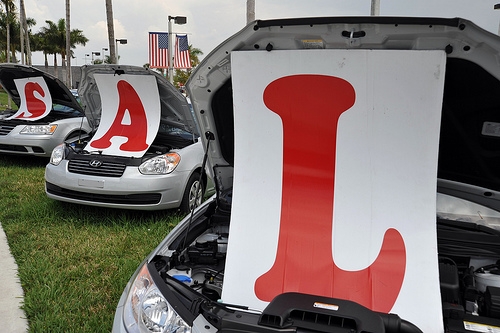
Auto leasing represents a viable alternative for some consumers in the market for a new car. Make no mistake, leasing has many benefits; but it also has several aspects that have historically confused consumers. Some of the terms and conditions of auto leasing are unlike anything many consumers have been exposed to. Consumers need to be prepared and understand the facts before deciding to lease a new car.
The interest rate in auto leases is reflected as a "money factor" rather than a traditional annual percentage rate (APR). To convert the money factor to an APR, calculate the money factor (usually reflected in decimals like .004) by 2400. In this case .004 multiplied by 2400 will convert to an APR of 9.6 percent. Dealers often use money factors deceptively; some have been known to present the money factor as an APR by telling consumers .004 is 4 percent APR. Money factors are simply another method of calculating accrued interest (see Resources).
Not necessarily. If leasing were a better deal for everyone, consumers would not purchase vehicles. Leasing is a better deal than buying in certain situations. If you get a new vehicle every couple of years leasing is a much better option for you. The same would apply if you own a small business or are self-employed (tax breaks). Leasing is probably not going to be a good deal for you if you drive a lot (20,000+ miles per year) or if you prefer to keep the same vehicle for awhile and pay it off.
Not necessarily. The largest portion of your lease payment goes towards depreciation. The residual value is the estimated value of the vehicle at the end of the lease. Your cost of the lease consists of: the difference between the price and the residual value, the money factor, taxes, and fees. The higher the residual value of the vehicle is, the less you will pay. Residual values are reflected in percentages of the original MSRP (such as 68 percent). A vehicle with a lower price is not necessarily cheaper to lease, if it has a high rate of depreciation.
It always is. Many dealers try to confuse consumers by telling them leases are non-negotiable and based upon the MSRP of the vehicle. This is not the case. The residual value is based on the MSRP, but there is a selling price to a lease. This is known as the "cap cost". The cap cost is clearly printed on every lease contract.
One of two things will happen once your lease is up. You can either purchase the car for the residual value (agreed upon at the time of the lease) or you can turn it back in to the dealer. When you return the vehicle to the dealer it will be stored until the leasing company (usually the manufacturer) picks it up. The leasing company will usually send the vehicle to an auto auction or offer it to a dealer at a wholesale price.
It depends on several factors. Leasing generally does not any fees at the end if you have kept the vehicle in good condition or have not exceeded the maximum allowable mileage. Leasing companies have very high over-the-limit fees for mileage (up to 20 cents per mile). They may also charge you reconditioning costs for excessive wear-and-tear.